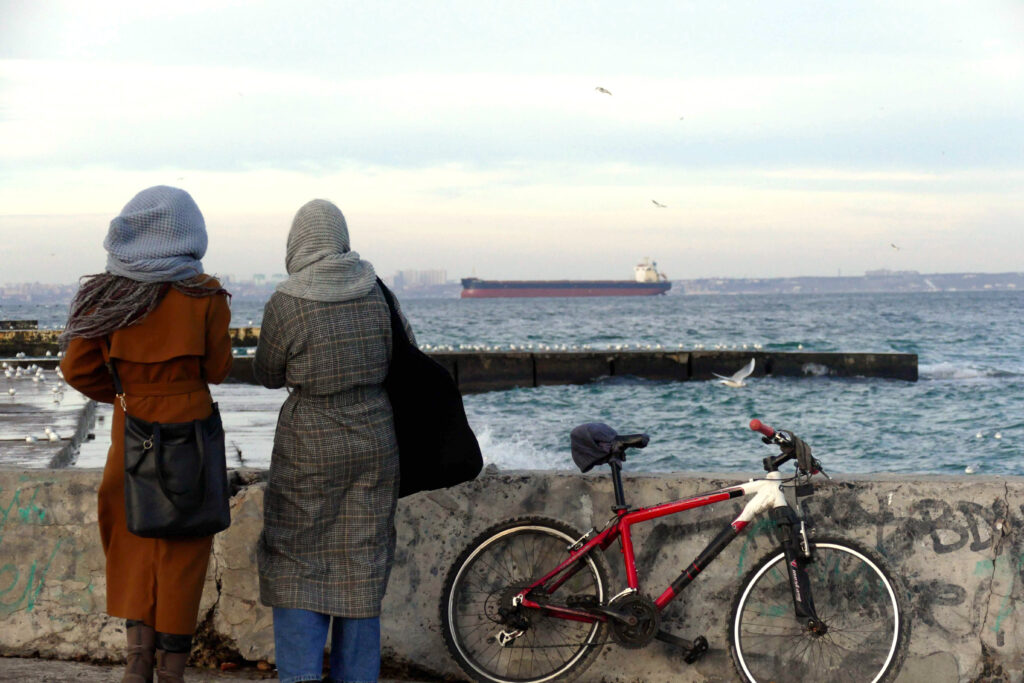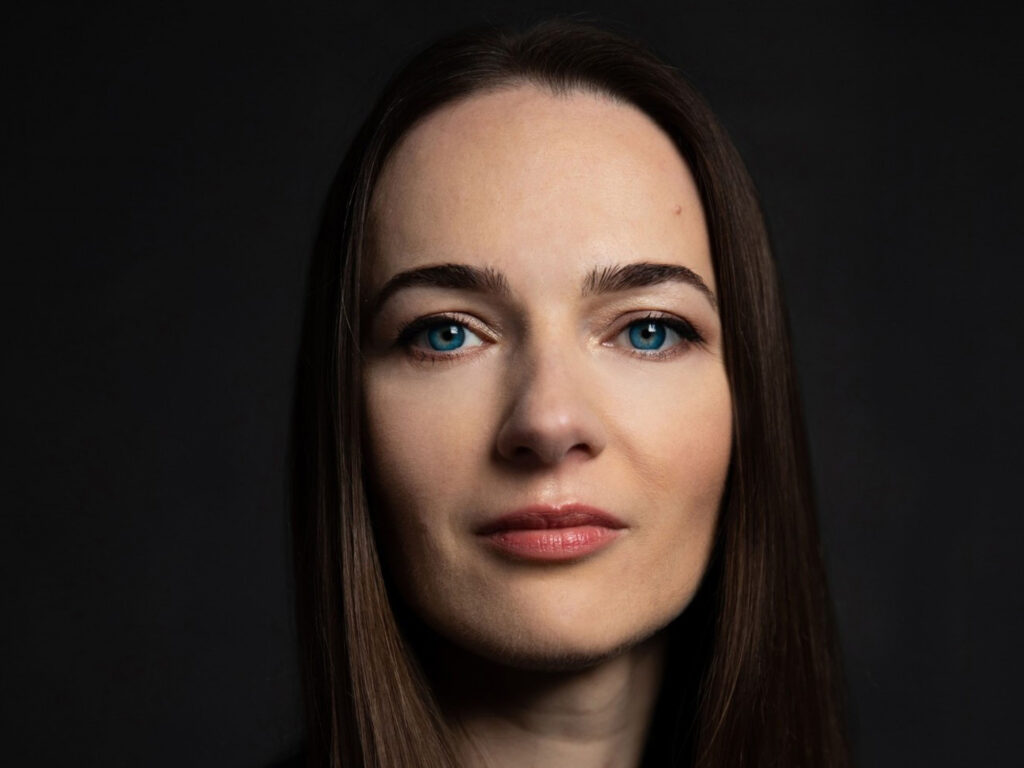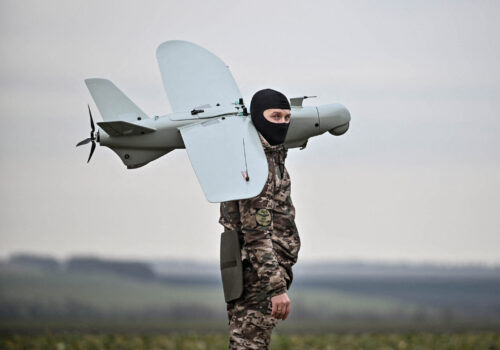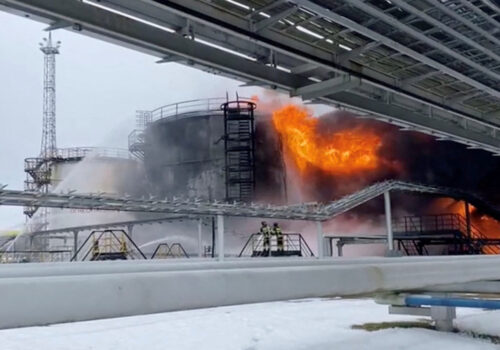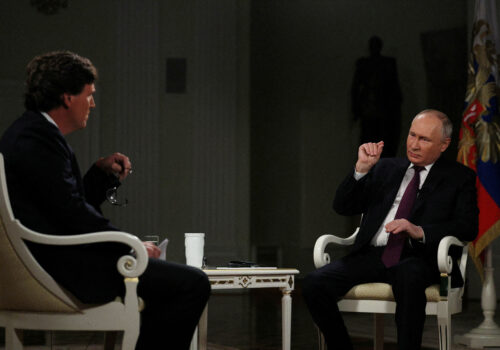Living in an active war zone over an extended period of time can play odd tricks on the mind. A calm moment in the park can be suddenly overtaken by visions of the previous evening’s air strikes. Roller coaster-like mood swings become commonplace and loud bangs ignite the urge to flee.
This is very much the case in Ukrainian Black Sea port city Odesa, where Russian bombardments have become part of daily life. With each new air raid alert, people check social media channels to assess the projected trajectory of incoming Russian drones and missiles. This is usually followed by a frenzied exchange of texts with friends and neighbors to determine whether a dash for the nearest bomb shelter is necessary.
During the initial phases of the war, this grand port city known as an international symbol of intercultural unity and a treasure trove of cultural sites remained relatively untouched from Russian aggression, to the point that it became a temporary home to tens of thousands of internally displaced Ukrainians. A huge banner in the city center reflects this status with the message: “You are not refugees, you are guests of Odesa.” At the city’s non-profit Mriya Family Center, volunteers provide free daycare and psychosocial sessions for children along with vocational training for displaced moms wishing to start new careers. However, escalating air attacks mean Odesa has now lost its status as a sanctuary away from the horrors of the Russian invasion.
Stay updated
As the world watches the Russian invasion of Ukraine unfold, UkraineAlert delivers the best Atlantic Council expert insight and analysis on Ukraine twice a week directly to your inbox.
The air strike campaign against Odesa first began to intensify last summer following Russia’s withdrawal from a UN-brokered agreement that had allowed shipments of Ukrainian grain to sail from the city’s port to global markets. Since July 2023, Russia has attacked Odesa region with over 880 drones and more than 170 missiles, according to Ukrainian Navy officials. The mood in Odesa has darkened significantly in recent weeks as Russian attacks have become more frequent and deadlier. At least 17 people, including five children, have died so far in March.
This is fueling renewed discussion among local residents and international officials over whether to stay or go. The question is no longer rhetorical: French President Emmanuel Macron recently told opposition party leaders he had sketched out a possible Russian military advance toward Odesa or Kyiv that “could lead to an intervention.” In response to the recent surge in air attacks, at least one foreign mission is pro-actively thinning its presence in Odesa for the time being.
In one of the most brazen attacks on Odesa since the start of Russia’s full-scale invasion in February 2022, the Kremlin sent a missile on March 6 to within a few hundred meters of where Ukrainian President Volodymyr Zelenskyy was meeting Greek PM Kyriakos Mitsotakis. “It is a very intense experience. It’s really different to read about the war in newspapers, and to hear it with your own ears, see it with your own eyes,” Mitsotakis commented after the attack.
Russian air strikes on Odesa are not only acts of aggression against Ukraine. The Kremlin’s bombing campaign also poses a direct threat to global food security. In this context, recent developments have been encouraging. Since Ukraine broke the Russian naval blockade of the country’s Black Sea ports last summer, cargo volumes of agricultural products have reached about two-thirds of their prewar levels, leading to a stabilization of grain prices on world markets.
This begs the question: Why has the international community not responded to the Russian maritime threat with the same robustness seen when protecting commercial shipping in the Red Sea? Do deliveries of consumer goods really matter more than grain shipments to world markets, especially to countries on the brink of starvation such as Sudan, to which Ukraine recently donated 7,000 tons of wheat?
Eurasia Center events

Increasingly, friends in Ukraine ask how long I think the war will last and whether the country can expect to be abandoned by weak-kneed Western allies afraid of provoking Putin. Military cemeteries such as the one at Lychakiv in Lviv are now full as war dead are carried to their final resting place, underlining the sense that not one Ukrainian family has been untouched by this war.
If anyone doubts Russia’s resolve to seize more Ukrainian land, they should carefully study former Russian President Dmitry Medvedev’s recent remarks to a forum in Sochi. Medvedev, who now serves as deputy head of Russia’s influential Security Council, outlined his vision for the near complete destruction of the Ukrainian state, with Ukraine reduced to a landlocked rump around Kyiv and most of the country incorporated into the Russian Federation. “One of Ukraine’s former leaders once said that Ukraine is not Russia. That concept needs to disappear forever,” he commented. “Ukraine is definitely Russia.”
The darkening mood in today’s Ukraine is not limited to Odesa. As the full-scale invasion passed the two-year mark recently, increasing doubts about Western pledges to support Ukraine “for as long as it takes” could be heard from politicians and civil society members. Several panelists at a high-profile forum in Kyiv on February 24 called out Western partners for failing to deliver on promises ranging from ammunition and longer-range missiles to tougher sanctions. Since then, worries have increased even further as US legislators kick the ball further down the road on the $60 billion supplemental bill for Ukraine that has yet to pass the US Congress.
There is now a growing feeling in Odesa and across Ukraine that time is running out. Unless new US aid is confirmed and the West arms Ukraine to the teeth, there may soon be nothing to prevent Russia from advancing all the way to Odesa and on to the border with Moldova. If that happens, the verdict of history, which can be extremely unkind to cowards, will be harsh for all those who failed to provide Ukraine with the support it so desperately needs.
Michael Bociurkiw is a nonresident senior fellow at the Atlantic Council’s Eurasia Center.
Further reading
The views expressed in UkraineAlert are solely those of the authors and do not necessarily reflect the views of the Atlantic Council, its staff, or its supporters.

The Eurasia Center’s mission is to enhance transatlantic cooperation in promoting stability, democratic values and prosperity in Eurasia, from Eastern Europe and Turkey in the West to the Caucasus, Russia and Central Asia in the East.
Follow us on social media
and support our work
Image: Ukraine's grain corridor in the Black Sea is reaching the capacity it had before the full-scale Russian invasion, in Odesa, southern Ukraine. January 15, 2024. (Photo by Ukrinform/NurPhoto)
